
Altstadt: The Heartbeat of Bern
Altstadt, the Old Town of Bern, is a UNESCO World Heritage site that offers a blend of historical charm and modern vibrancy. A walk through its cobblestone streets will transport you back in time, with medieval architecture and centuries-old fountains at every turn. The Zytglogge clock tower, an iconic symbol of Bern, stands proudly in the heart of Altstadt, offering a fascinating glimpse into the city's rich history. The area is also home to the Federal Palace, where you can witness Swiss democracy in action. For art enthusiasts, the Kunstmuseum houses an impressive collection of works from various periods. Altstadt's six kilometers of arcades, known as 'Lauben', provide a unique shopping experience, offering everything from luxury boutiques to charming local shops. Don't forget to visit the Bear Park, located at the edge of Altstadt, where you can see Bern's beloved bears in a natural setting. The neighborhood's vibrant cafes and restaurants offer a taste of Swiss cuisine, making it a perfect place to relax and soak in the atmosphere. Whether you're a history buff, a foodie, or just someone looking to explore, Altstadt has something to offer for everyone.
Local tips in Altstadt
- Wear comfortable shoes; the cobblestone streets can be uneven.
- Visit the Zytglogge clock tower at noon to see the mechanical figures in action.
- Take a guided tour of the Federal Palace for an insightful experience.
- Check out the local market on Bundesplatz if you're visiting on a Tuesday or Saturday.
- Sample Swiss chocolate from one of the local confectioneries.
Altstadt: The Heartbeat of Bern
Altstadt, the Old Town of Bern, is a UNESCO World Heritage site that offers a blend of historical charm and modern vibrancy. A walk through its cobblestone streets will transport you back in time, with medieval architecture and centuries-old fountains at every turn. The Zytglogge clock tower, an iconic symbol of Bern, stands proudly in the heart of Altstadt, offering a fascinating glimpse into the city's rich history. The area is also home to the Federal Palace, where you can witness Swiss democracy in action. For art enthusiasts, the Kunstmuseum houses an impressive collection of works from various periods. Altstadt's six kilometers of arcades, known as 'Lauben', provide a unique shopping experience, offering everything from luxury boutiques to charming local shops. Don't forget to visit the Bear Park, located at the edge of Altstadt, where you can see Bern's beloved bears in a natural setting. The neighborhood's vibrant cafes and restaurants offer a taste of Swiss cuisine, making it a perfect place to relax and soak in the atmosphere. Whether you're a history buff, a foodie, or just someone looking to explore, Altstadt has something to offer for everyone.
Iconic landmarks you can’t miss
UNESCO - Bern Old Town
Explore Bern's Old Town: A UNESCO World Heritage site filled with medieval charm, stunning architecture, and rich history.
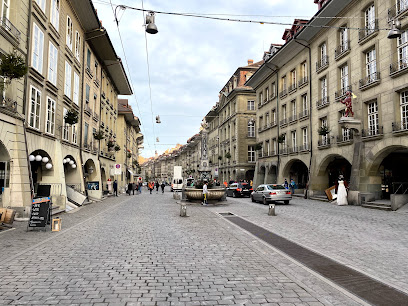
Zytglogge
Discover the Zytglogge, an iconic clock tower in Bern, Switzerland, showcasing a captivating blend of history, culture, and stunning architecture.
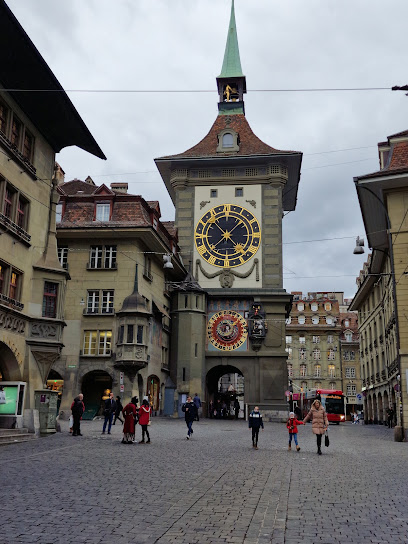
Käfigturm
Discover Käfigturm, an iconic historical landmark in Bern, showcasing rich heritage, stunning views, and fascinating exhibitions.

Waisenhausplatz
Discover the historic Waisenhausplatz in Bern, Switzerland, a beautiful square rich in culture and stunning architecture, perfect for leisurely exploration.
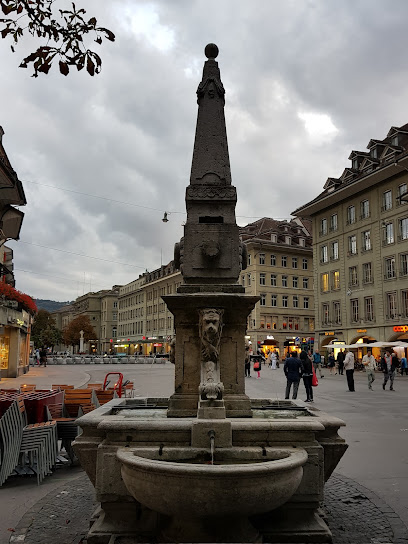
Gerechtigkeitsbrunnen
Discover Gerechtigkeitsbrunnen in Bern, a stunning 16th-century fountain symbolizing justice and a highlight of the city's rich cultural heritage.
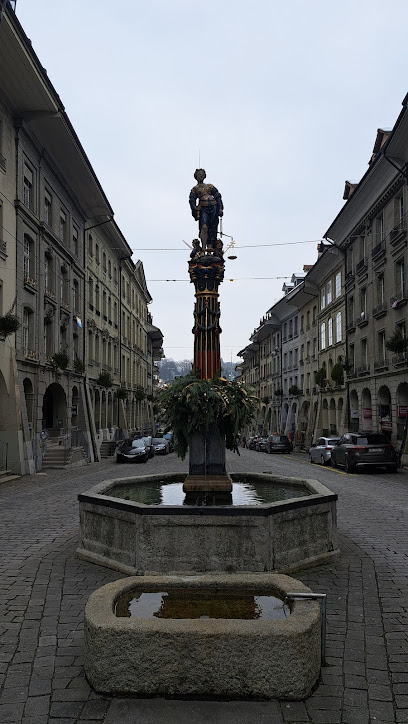
Bern Old Town View Point
Experience the breathtaking views of Bern's historic architecture from the Old Town View Point, a serene observatory in the heart of Switzerland's capital.
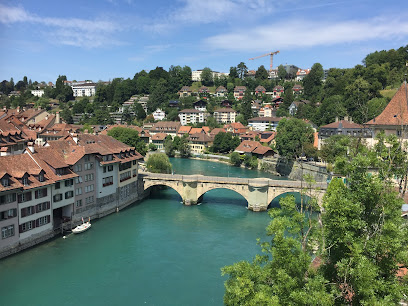
Münsterplatz
Experience the historical charm and architectural beauty of Münsterplatz, a vibrant square in Bern, Switzerland, surrounded by cultural richness and stunning views.
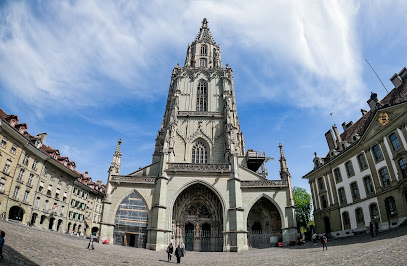
Kramgasse
Explore Kramgasse, the historic heart of Bern, where medieval architecture meets vibrant local culture and unforgettable Swiss experiences.
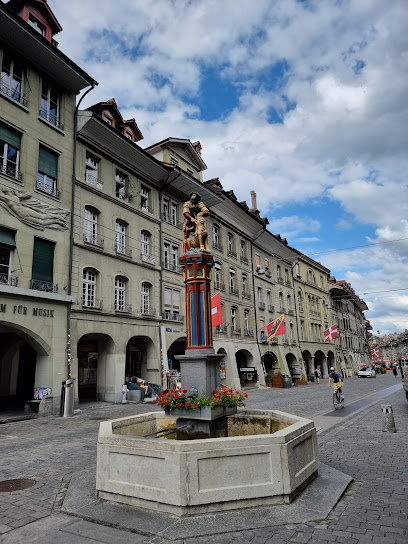
Gerechtigkeitsgasse
Discover the enchanting Gerechtigkeitsgasse in Bern, a blend of medieval charm, picturesque streets, and vibrant local culture.
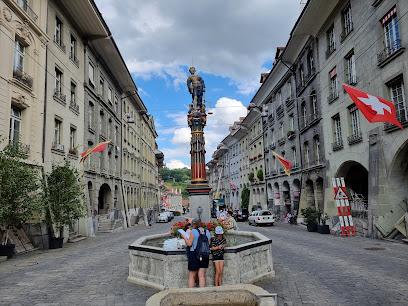
Aussichtsplattform Altstadt „Place du Marin“
Discover the stunning views of Bern at the Aussichtsplattform Altstadt, a perfect blend of history, nature, and breathtaking scenery.
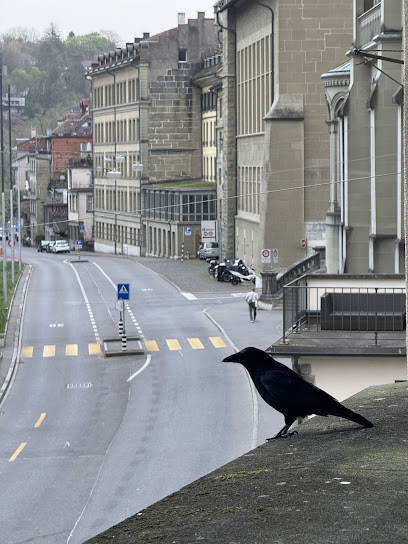
Unmissable attractions to see
UNESCO - Bern Old Town
Discover the enchanting UNESCO World Heritage site of Bern Old Town, where medieval charm meets vibrant culture in the heart of Switzerland.
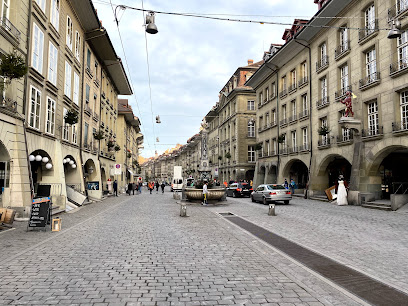
Kleine Schanze
Discover the tranquility of Kleine Schanze, Bern's charming city park, perfect for relaxation, picnics, and scenic views in Switzerland's capital.
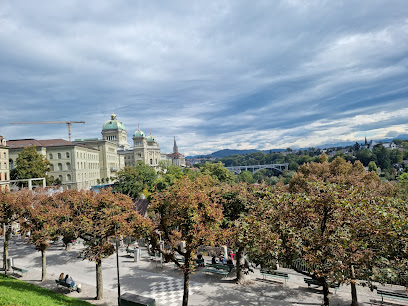
Münsterplattform
Discover the serene beauty of Münsterplattform, an essential park in Bern offering breathtaking views and a peaceful retreat in the city's heart.
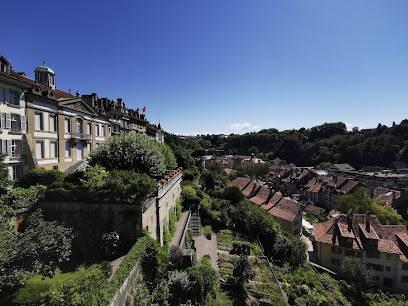
Waisenhausplatz
Explore Waisenhausplatz in Bern, a captivating square rich in history, stunning architecture, and vibrant culture, perfect for every traveler.
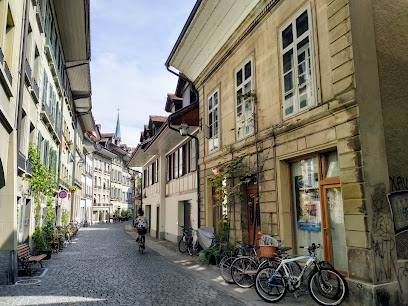
Gerechtigkeitsbrunnen
Discover the historical Gerechtigkeitsbrunnen in Bern, a majestic fountain symbolizing justice and artistic grandeur, perfect for capturing unforgettable moments.
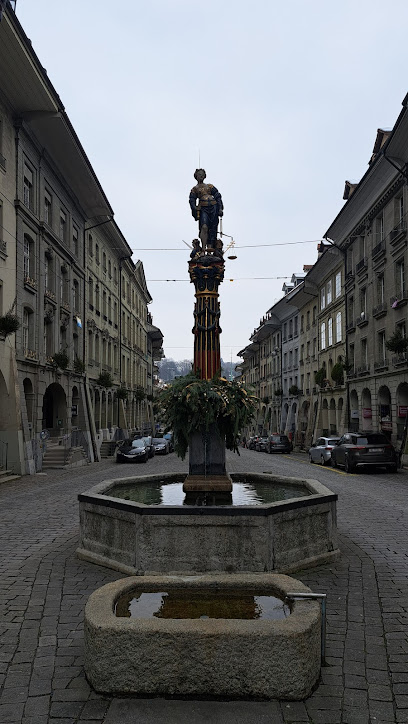
Kramgasse
Explore Kramgasse, the historic heart of Bern, where medieval charm meets modern vibrancy in Switzerland's stunning capital.
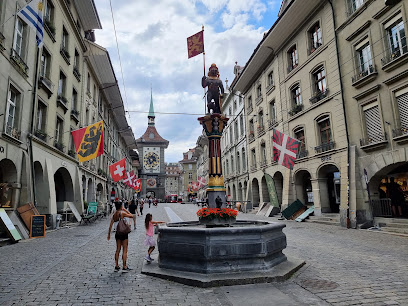
Aussichtsplattform Altstadt „Place du Marin“
Experience the stunning views of Bern and the Alps from Place du Marin, a must-visit scenic platform in Switzerland's capital.
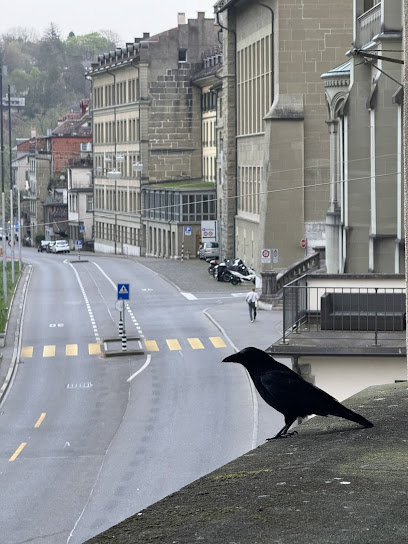
ベンチに座るアインシュタイン像
Discover the breathtaking beauty of the Bernese Hills, a serene retreat nestled in the heart of Bern, Switzerland, perfect for nature lovers and adventurers.
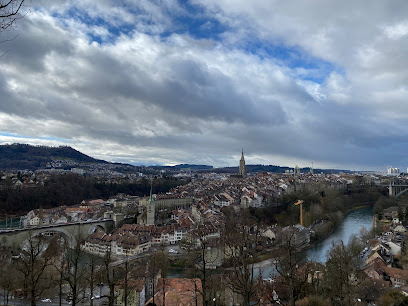
Essential places to dine
Kornhauskeller Restaurant & Bar
Experience the best of Swiss and Mediterranean cuisine at Kornhauskeller Restaurant & Bar in the heart of Bern.
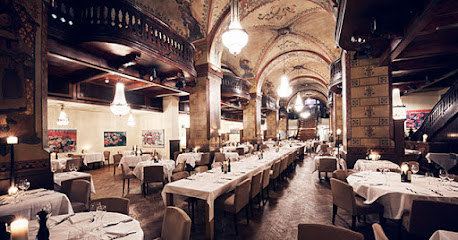
Ristorante Verdi
Experience authentic Italian cuisine at Ristorante Verdi in Bern - where tradition meets modern elegance.
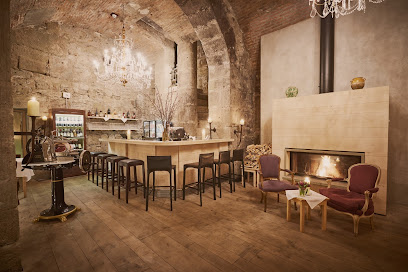
Restaurant Zunft zu Webern
Discover authentic Swiss cuisine at Restaurant Zunft zu Webern in Bern's historic old town, where tradition meets culinary excellence.
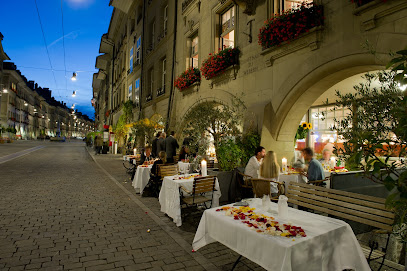
Mille Sens
Discover the art of fusion cuisine at Mille Sens in Bern - where Swiss tradition meets global flavors for an unforgettable dining experience.
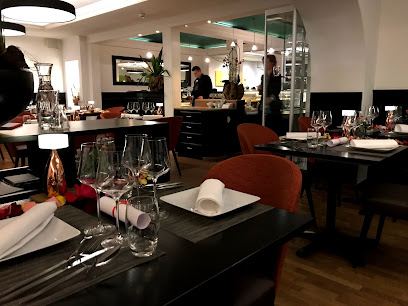
Kramer
Experience exquisite dining at Kramer in Bern - where local flavors meet exceptional service in a charming atmosphere.
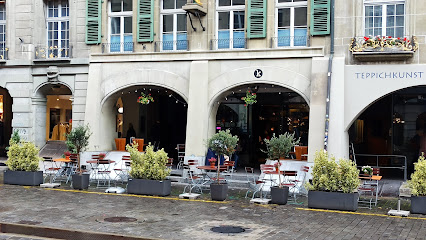
Krone
Discover Krone in Bern: A delightful blend of Swiss and Mediterranean cuisine awaits in this charming gastropub.
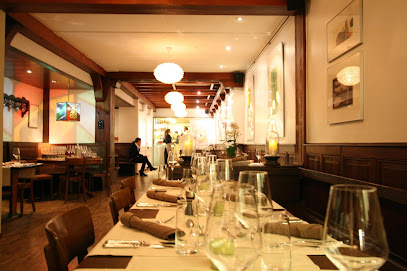
Falken
Discover authentic Swiss cuisine at Falken in Bern—where tradition meets taste in a cozy atmosphere.
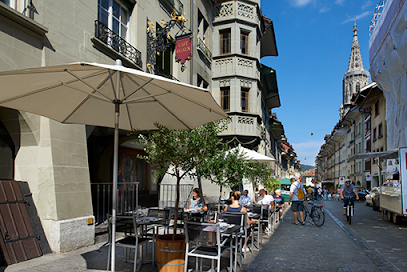
Brasserie Ratskeller
Discover culinary excellence at Brasserie Ratskeller in Bern's historic Old Town—where tradition meets flavor.
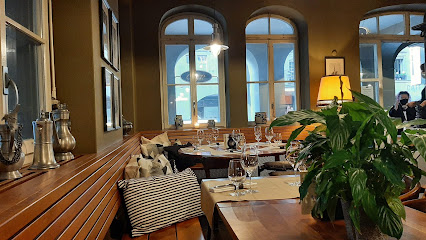
moment
Experience modern Swiss cuisine at Moment in Bern - where tradition meets innovation in every delicious bite.
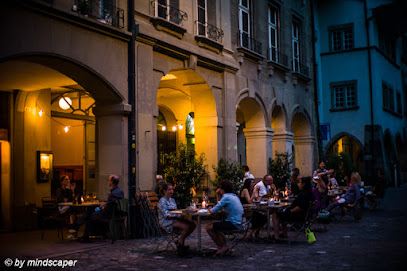
Wein & Sein
Experience culinary artistry at Wein & Sein in Bern—where fresh local ingredients meet creative European cuisine in an elegant setting.
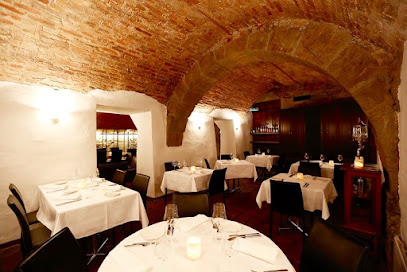
Markets, malls and hidden boutiques
CHAT NOIR AG
Explore the enchanting CHAT NOIR AG, Bern's quintessential gift shop for unique souvenirs, greeting cards, and local artistry.
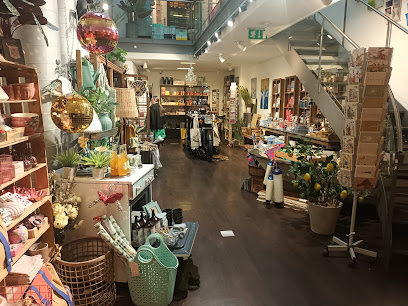
Yamatuti
Explore Yamatuti in Bern for unique gifts and handcrafted treasures that capture the essence of Swiss craftsmanship and charm.
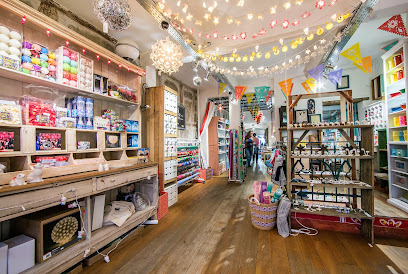
Swiss Design Market
Explore the Swiss Design Market in Bern for unique artisanal goods, showcasing the best of Swiss craftsmanship and contemporary design.
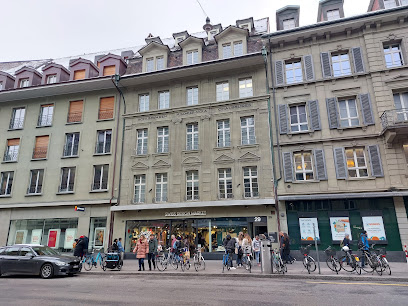
Lhasa Boutique
Explore Lhasa Boutique in Bern, where unique Tibetan treasures await to enrich your travel experience with cultural authenticity.
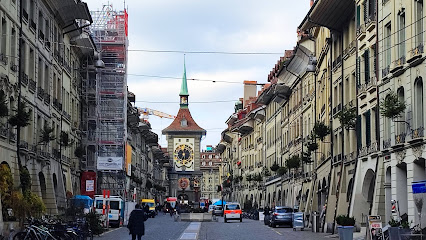
Zytglogge Boutique
Discover unique souvenirs and local treasures at Zytglogge Boutique, a charming souvenir store in the heart of Bern, Switzerland.
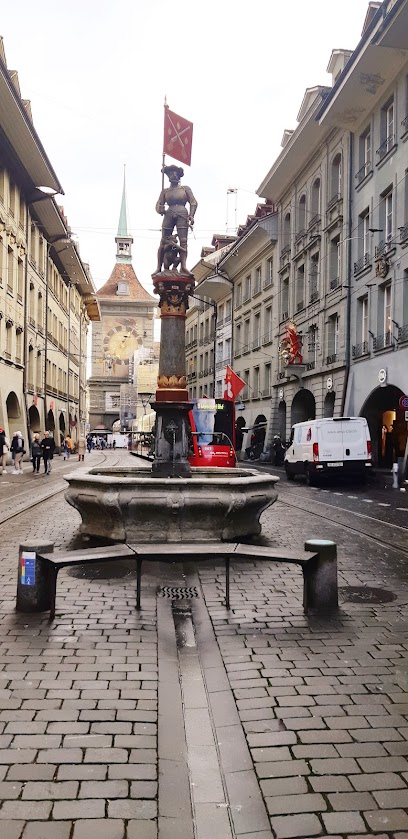
einLaden Bern
Experience the authentic charm of Switzerland at einLaden Bern, where local crafts and artisanal goods create unforgettable souvenirs.
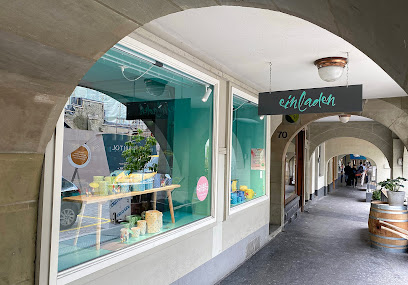
mint
Explore the charm of Bern at Mint Boutique, where local fashion meets unique treasures in a cozy shopping experience.
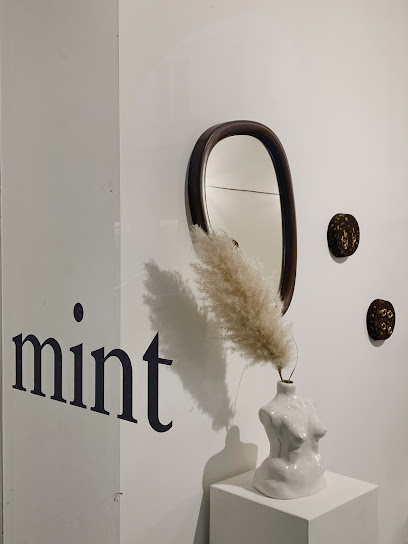
MAISONART concept store
Experience the artistic essence of Bern at MAISONART Concept Store, where contemporary design meets local craftsmanship.
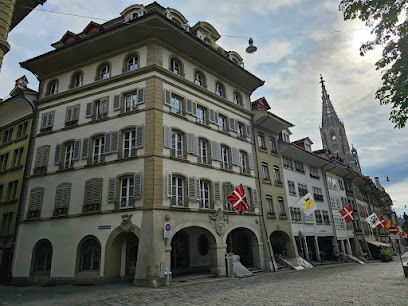
UndergroundStation
Unearth unique treasures at Bern's UndergroundStation, a vintage clothing store where every piece tells a story and fashion meets history.
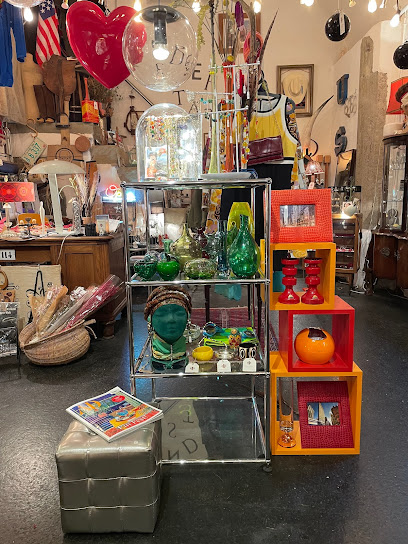
Boutique Schütz
Explore the charm of Swiss fashion at Boutique Schütz in Bern, where unique style meets local craftsmanship.
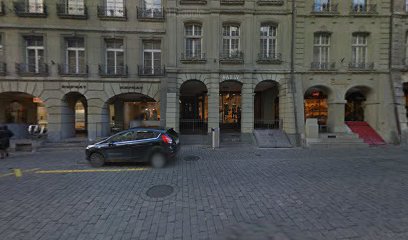
Essential bars & hidden hideouts
Cuba Bar Bern
Experience the vibrant spirit of Cuba at Cuba Bar Bern, where cocktails and lively ambiance create unforgettable moments in the heart of the city.
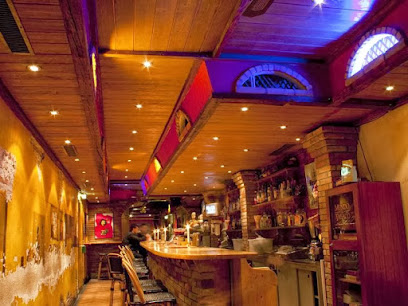
Old City Irish Pub
Discover the Old City Irish Pub in Bern - a vibrant spot for drinks, delicious food, and live sports in a charming atmosphere.
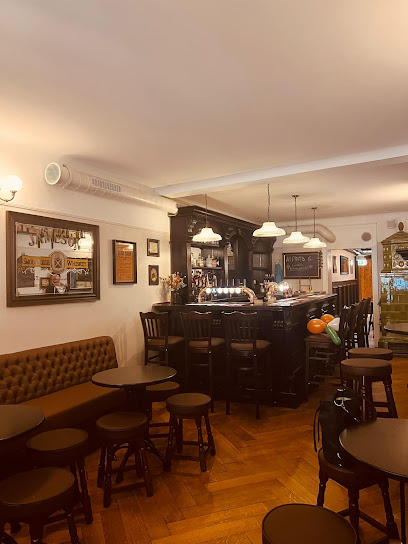
Abflugbar
Discover the vibrant ambiance of Abflugbar in Bern, where cocktails, camaraderie, and a captivating nightlife await you.
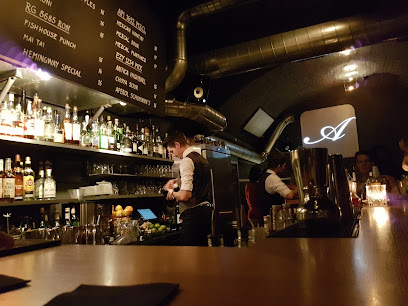
Die Taube
Experience the vibrant nightlife of Bern at Die Taube, where local charm meets modern sophistication in a delightful bar atmosphere.
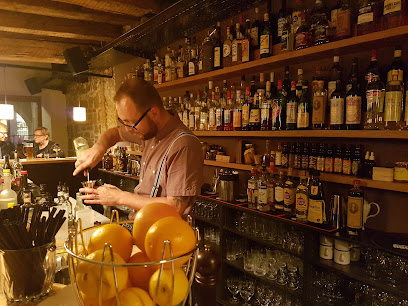
Les Amis / Wohnzimmer
Discover the heartbeat of Bern's nightlife at Les Amis / Wohnzimmer, a live music bar where great tunes meet a vibrant atmosphere.
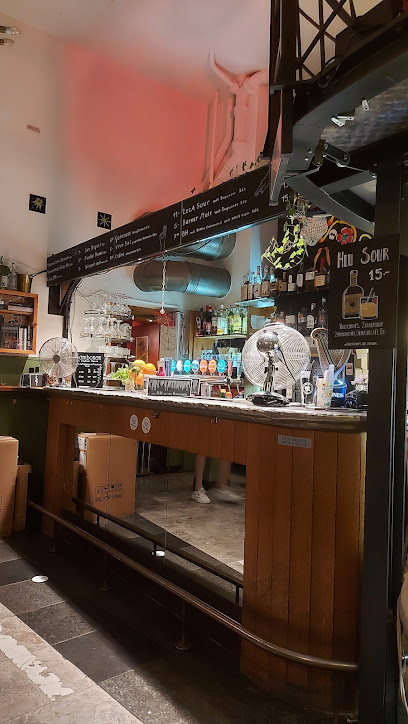
MARTA Cafe - Music - Bar
Discover the lively MARTA Cafe in Bern, where music, art, and delicious drinks come together for an unforgettable experience.
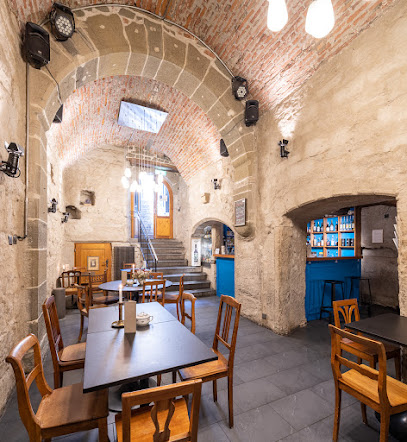
Rathaus Bar
Experience the charm of Bern at Rathaus Bar, where delightful drinks meet a cozy atmosphere in the heart of the city.
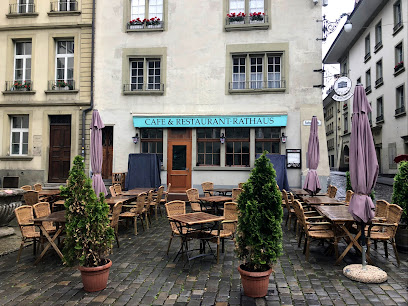
Department 66
Discover the art of cocktail making at Department 66 in Bern, where unique flavors meet a lively atmosphere for an unforgettable night out.
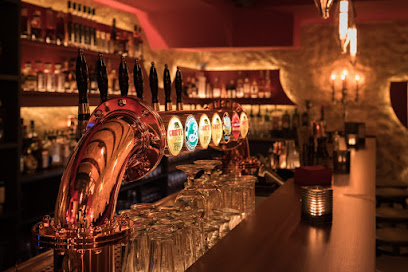
Bäregrotte
Experience the vibrant nightlife of Bern at Bäregrotte, where cocktails, live music, and a cozy atmosphere await every visitor.
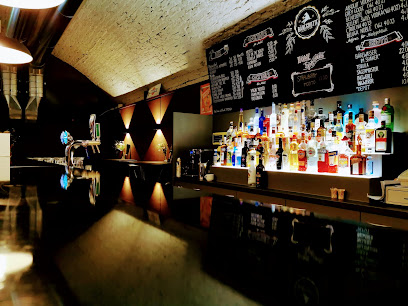
Fernweh Bar
Discover the vibrant atmosphere and unique cocktails at Fernweh Bar, a hidden gem in the heart of Bern's nightlife scene.
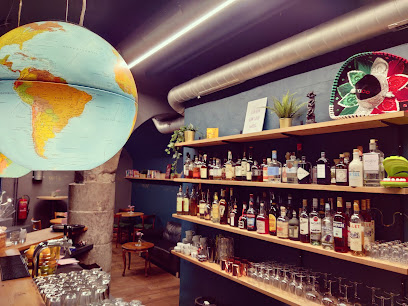
Local Phrases
-
- HelloGrüezi
[grewt-see] - GoodbyeUf Widerluege
[oof vee-der-lee-ge] - YesJa
[yah] - NoNei
[nye] - Please/You're welcomeBitte
[bi-te] - Thank youMerci vilmal
[mehr-see feel-mal] - Excuse me/SorryEntschuldigung
[ent-shool-dee-goong] - How are you?Wie goht's dir?
[vee gotz deer] - Fine. And you?Guat. Und dir?
[gwat oond deer] - Do you speak English?Redsch du Englesch?
[redsh doo eng-lesh] - I don't understandI verstoh nid
[ee verst-ho neet]
- HelloGrüezi
-
- I'd like to see the menu, pleaseChönnti bitte d'Menu ha?
[churn-tee bi-te d'meh-noo ha] - I don't eat meatI äss keis Fleisch
[ee ess kice flysh] - Cheers!Proscht!
[prosht] - I would like to pay, pleaseChönnti bitte zahle?
[churn-tee bi-te tsah-leh]
- I'd like to see the menu, pleaseChönnti bitte d'Menu ha?
-
- Help!Hülf!
[hoelf] - Go away!Gang weg!
[gahng vehg] - Call the Police!Ruef d'Polizei!
[roo-ehf deh-poh-lee-tsey] - Call a doctor!Ruef en Dokter!
[roo-ehf en dohk-ter] - I'm lostI ha mi verlore
[ee hah mee fer-loh-reh] - I'm illI bi chrangk
[ee bee krank]
- Help!Hülf!
-
- I'd like to buy...I möcht ... chaufe
[ee muhkt ... kow-fuh] - I'm just lookingI lueg nur
[ee loog noor] - How much is it?Was koschtet das?
[vahs kohshtet dahs] - That's too expensiveDas isch z' teuer
[dahs ish tsoh toy-er] - Can you lower the price?Chönd Sie de Priis redeziere?
[churnt zee deh prees reh-deh-tsee-reh]
- I'd like to buy...I möcht ... chaufe
-
- What time is it?Wieviu isch's?
[vee-foy isschs] - It's one o'clockEis isch's
[ice isschs] - Half past (10)Halbi zehni
[hal-bee tseh-nee] - MorningMorge
[mohr-geh] - AfternoonNamitag
[nah-mee-tahg] - EveningAbig
[ah-big] - YesterdayGestere
[gehs-teh-reh] - TodayHüt
[hoot] - TomorrowMorn
[morn] - 1Eis
[ice] - 2Zwei
[tsey] - 3Drei
[dry] - 4Vieri
[feer-ee] - 5Füfi
[foo-fee] - 6Sächsi
[zehk-see] - 7Sächsi
[zehk-see] - 8Achti
[ahk-tee] - 9Nüni
[noo-nee] - 10Zähni
[tseh-nee]
- What time is it?Wieviu isch's?
-
- Where's a/the...?Wo isch a/d...?
[voh issch ah/deh] - What's the address?Was isch d'Adresse?
[vahs issch dah-drehseh] - Can you show me (on the map)?Chönd Sie mir's zeige (uf em Plan)?
[churnt zee meers tsie-geh (oof em plahn)] - When's the next (bus)?Wänn gaht de nächschti (Bus)?
[vann gaht deh nekh-shtee (boos)] - A ticket (to ....)E Billett (nach ....)
[eh bill-et (nahkh ....)]
- Where's a/the...?Wo isch a/d...?
History of Altstadt
-
Bern was founded in 1191 by Duke Berthold V of Zähringen. The Altstadt, or Old Town, developed rapidly due to its strategic location along the Aare River, which facilitated trade and commerce. The layout of the Altstadt reflects a typical medieval city, with narrow streets, well-preserved buildings, and a distinct architectural style that showcases its historical significance.
-
In 1983, Bern's Altstadt was designated as a UNESCO World Heritage Site due to its cultural and historical importance. The recognition emphasized the preservation of its medieval architecture, including the iconic Zytglogge clock tower and the Federal Palace, which symbolize the city's rich history and its role as Switzerland's capital.
-
Since the establishment of the Swiss Confederation in 1291, Bern has served as a political hub. The Altstadt houses the Federal Palace (Bundeshaus), completed in 1902, which is the seat of the Swiss Federal Assembly and Federal Council. This building is a crucial site for Swiss governance and reflects the evolution of democracy in the country.
-
The 19th century was a period of cultural flourishing for Bern. The Altstadt became a center for arts and education, with institutions such as the Bern Historical Museum and the University of Bern being established. This era also saw the construction of several public buildings and the enhancement of public spaces, contributing to the city's cultural landscape.
-
In recent decades, Bern has focused on preserving the character of the Altstadt while accommodating modern needs. Initiatives aimed at maintaining its historical integrity include restrictions on new construction and renovations. The city has also enhanced pedestrian areas, making it more accessible and promoting tourism while respecting its heritage.
Altstadt Essentials
-
Altstadt is conveniently located in the heart of Bern, and can be easily accessed via various modes of transportation. From Bern's main train station (Bern Hauptbahnhof), you can walk to Altstadt in about 10-15 minutes. Alternatively, tram lines 9 and 10 provide direct access to the area. If you are coming from other neighborhoods, local buses also connect to Altstadt, making it accessible from all parts of the city.
-
Altstadt is a compact area that is best explored on foot, allowing visitors to fully appreciate its historical architecture and cobblestone streets. Public transportation options include trams and buses, which are frequent and reliable. For a more local experience, consider renting a bicycle; Bern is known for its bike-friendly infrastructure. Bicycle rental stations are available throughout the city.
-
Altstadt is generally a safe neighborhood for tourists. However, it is advisable to stay alert, especially in crowded areas where pickpocketing may occur. Specific areas to be cautious about include the vicinity of major tourist attractions during peak hours. Always keep your belongings secure and avoid displaying valuable items.
-
In case of an emergency, dial 112 for police, fire, or medical assistance in Switzerland. The nearest hospital is Inselspital, located a short distance from Altstadt. It is also advisable to have travel insurance that covers emergencies. Pharmacies can be found throughout the neighborhood for minor health issues.
-
Fashion: Do dress modestly, especially when visiting churches or religious sites. Don't wear revealing clothing. Religion: Do respect local customs; take care to cover your head when entering specific religious locations. Public Transport: Do be polite and offer your seat to elderly passengers. Don't eat or drink on public transport. Greetings: Do greet locals with a friendly 'Grüezi' and a handshake. Eating & Drinking: Do enjoy local cuisine and accept food offerings graciously. Don't refuse hospitality, as it may be seen as disrespectful.
-
To experience Altstadt like a local, visit the weekly markets for fresh produce and local specialties. Engage with shopkeepers and locals, as they often have great stories to share. Don't miss the opportunity to explore hidden courtyards and lesser-known alleys for a more authentic experience. Additionally, enjoy a coffee at one of the many cozy cafés, where you can soak in the ambiance and people-watch.
Nearby Cities to Altstadt
-
Things To Do in Thun
-
Things To Do in Interlaken
-
Things To Do in Murren
-
Things To Do in Grindelwald
-
Things To Do in Lucerne
-
Things To Do in Basel
-
Things To Do in Montreux
-
Things To Do in Vevey
-
Things To Do in Lausanne
-
Things To Do in Zurich
-
Things To Do in Zermatt
-
Things To Do in Freiburg
-
Things To Do in Colmar
-
Things To Do in Geneva
-
Things To Do in Ascona













